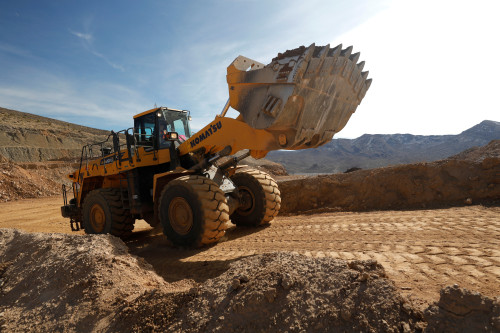By Jarrett Renshaw and Ernest Scheyder
(Reuters) – Advisers to incoming U.S. President Donald Trump are recommending he waive environmental reviews for federally funded critical minerals projects to boost domestic production of materials used in electric vehicles, electronics and weapons, according to a document seen by Reuters.
Implementation would reflect a major shift in how Washington reviews proposed mines on federal lands and aims to ensure that projects receiving loans, grants or other government support are able to help the U.S. cut dependence on China, the world’s largest miner and processor of lithium, cobalt and other critical minerals.
The advisers, tasked by Trump’s transition team to develop policy ideas around electric vehicle supply chains, urged Trump to waive requirements under the National Environmental Policy Act (NEPA) to expedite permitting and construction reviews for production of critical minerals, batteries and magnets, the document showed. NEPA applies to projects on federal lands.
Trump is set to take office on Jan. 20.
Jason Miller, a senior adviser for the transition, said Trump has not indicated his stance on the issue and noted the recommendations come from “outsiders who have no role in charting administration policy.”
Trump often pledged on the campaign trail to cut what he considers bureaucratic overreach. Last week, he said he would expedite permits for any company investing more than $1 billion in the U.S. Most proposed mines in the country cost more than that.
First enacted in 1970, NEPA is the bedrock U.S. environmental law, requiring reviews for major projects that receive federal permits or funding. The law can involve review from numerous federal agencies and is not overseen by any one office or official, adding to its complexity.
NEPA reviews are frequently challenged, and litigation can delay construction on projects for years, to the consternation of mining companies and Republican officials. A president cannot unilaterally limit lawsuits against mining projects although he could work with Congress to do so.
Proposed U.S. critical minerals projects from Antofagasta, Rio Tinto, BHP, Perpetua Resources and others have been in regulatory review for more than a decade.
During his first term, Trump and then-Interior Secretary David Bernhardt limited NEPA reviews to no more than 300 pages and said they should be done faster, describing the process as “needlessly complex.” Those changes were reversed under President Joe Biden.
If Trump adopts the recommendations, it could expedite billions of dollars in federally-backed projects, including lithium mines and processing facilities. This could help even the playing field with rival China, which has dominated global markets with supplies of cheap metals and blocked exports of some materials to the U.S.
Conservation and environmental groups contend that NEPA helps ensure all voices are heard when access to federal lands is granted, and that climate change and environmental justice considerations are part of the review process.
Additionally, some conservation groups have complained that Washington is de facto approving mines when federal grants or loans are issued and essentially leap-frogging the NEPA review process.
Mining companies do not pay royalties to Washington when they extract metals from federal land, a quirk of federal law stemming from the General Mining Law of 1872. Oil companies, by contrast, pay royalties when they operate on federal land.
Trump was broadly supportive of mining during his first term and approved mines from Lithium Americas and others, but he did take steps to block a major Alaska mining project from Northern Dynasty Minerals.
The incoming president has hinted at other actions that could help U.S. miners, including imposing tariffs on all battery materials globally, with exemptions negotiated for allies.
Multiple U.S. miners have said they would prefer to have the permitting process reformed rather than tariffs issued broadly, a step one executive told Reuters would reflect a “sledgehammer” approach to trade issues.
(Reporting by Jarrett Renshaw in Philadelphia and Ernest Scheyder in Houston; Editing by Veronica Brown and David Gregorio)


